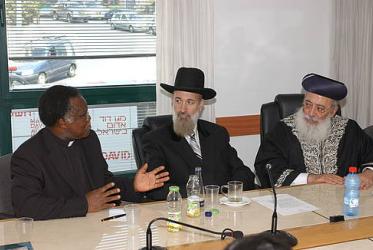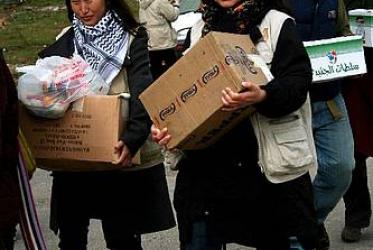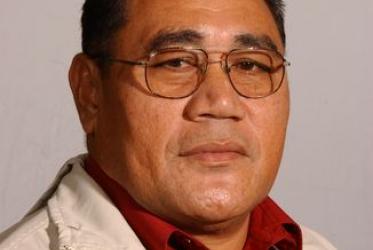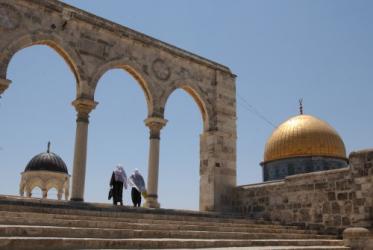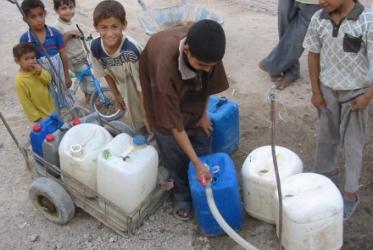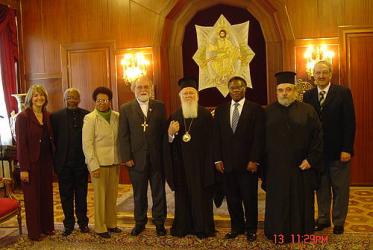Displaying 661 - 680 of 821
Egypt visit to highlight WCC Middle East focus
12 June 2008
E-mail a prayer for peace to Bethlehem
28 May 2008
WCC delegation met with Syria's Assad
24 April 2008
WCC statements address climate change, other topics
20 February 2008
Ecumenical initiative to accompany churches in conflict situations
20 December 2007
After Annapolis, Christian leaders entertain hope, with provisos
28 November 2007
WCC welcomes Annapolis meeting, suggests criteria for success
26 November 2007





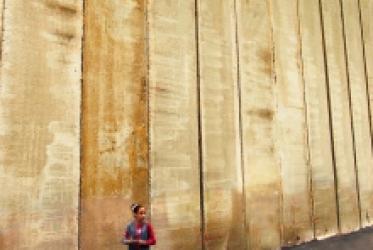
!["All Iraqis are trying to leave," Clara - a young woman working for the Greek Orthodox Patriarchate in Damascus and a refugee herself - told the WCC delegation. "Since one year the United Nations tell us that they will find a solution [for Iraqi refugees in the region], but nothing happens." "All Iraqis are trying to leave," Clara - a young woman working for the Greek Orthodox Patriarchate in Damascus and a refugee herself - told the WCC delegation. "Since one year the United Nations tell us that they will find a solution [for Iraqi refugees in the region], but nothing happens."](/sites/default/files/styles/teaser/public/newsItem/wjV59XHs.jpeg?itok=YIkp9xNl)



